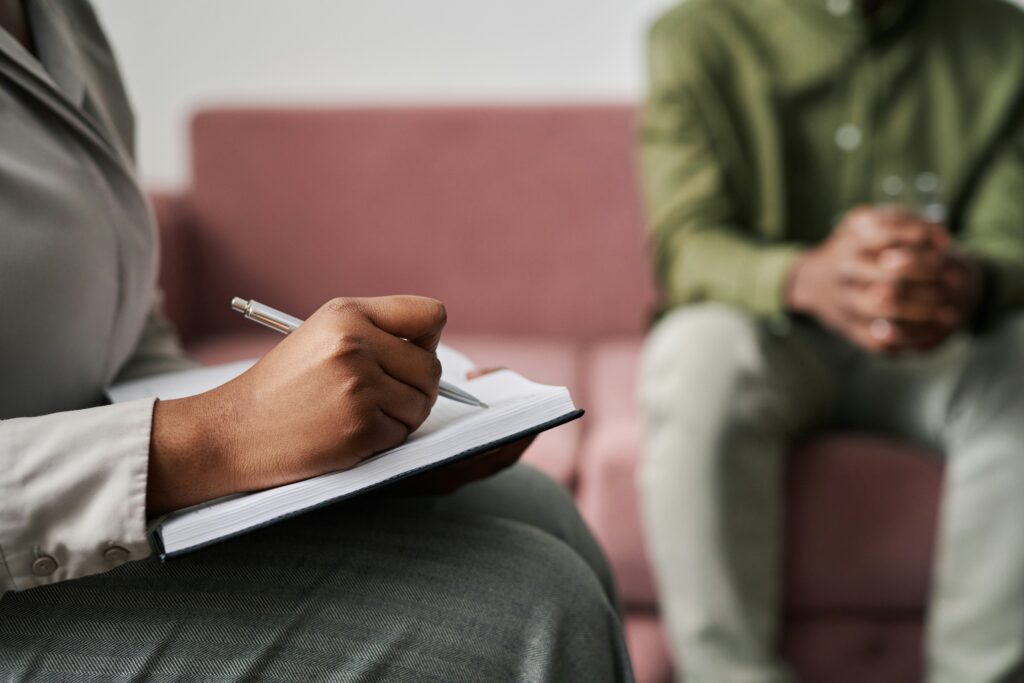Anxiety and sleep disorders often go hand in hand, and it’s a connection that’s both fascinating and alarming. Whether you’re experiencing sleepless nights due to racing thoughts or your anxiety seems to stem from a chronic lack of restful slumber, understanding the link between these two can be key to managing and improving your overall well-being.
Understanding Anxiety
Anxiety is more than just feeling stressed or worried. It’s a persistent concern that doesn’t go away and can get worse over time. This condition affects the way you feel and can manifest in various physical symptoms, including an increased heart rate, rapid breathing, sweating, or even trembling. It’s also a significant mental health issue that has a profound impact on your daily life.
The Mechanics of Sleep
Sleep is an essential function that allows your body and mind to recharge, aiding the body to remain healthy and fend off diseases. Without enough sleep, your brain cannot function properly, affecting your cognitive skills, concentration, and response times. Adults typically need between seven to nine hours of sleep per night to maintain optimal health.
How Anxiety Affects Sleep
The relationship between anxiety and sleep disorders is reciprocal. Anxiety can impact the quality and quantity of your sleep, leading to what experts call “sleep anxiety.” This occurs when worrying about sleep itself becomes a stressor, making it even harder to fall or stay asleep. For example, if you’ve had previous nights of poor sleep, the anticipation of another sleepless night might make you anxious, thereby creating a vicious cycle of insomnia and anxiety.
In more technical terms, anxiety triggers your body’s stress response system, which releases cortisol—often referred to as the “stress hormone.” Elevated cortisol levels can lead to a heightened state of alertness, making it difficult for you to calm down and fall asleep.
Common Sleep Disorders Linked to Anxiety
Several sleep disorders are commonly linked to anxiety:
- Insomnia: This is the most common sleep disorder, characterized by difficulty falling or staying asleep. Anxiety is a leading cause of insomnia because the condition keeps the mind active, preventing relaxation.
- Sleep Apnea: Although primarily a physical health issue, sleep apnea can be exacerbated by anxiety. The repeated episodes of stopping and starting breathing can make you anxious about going to sleep or staying asleep, thereby impacting overall sleep quality.
- Restless Legs Syndrome (RLS): This is a neurological disorder where you have, often uncomfortable, urges to move your legs. Anxiety can worsen RLS symptoms, leading to disrupted sleep.
The Science Behind the Connection
Research continually finds that anxiety and sleep disorders have a bidirectional relationship. According to a study by the Anxiety and Depression Association of America, over 50% of adults with Generalized Anxiety Disorder (GAD) experience sleep-related issues. Source.
Multiple parts of the brain regulate both anxiety and sleep, including the amygdala, which processes emotions like fear and anxiety, and the hypothalamus, which controls sleep. Imbalances in neurochemicals, like serotonin and dopamine, that affect your mood can also impact sleep patterns, demonstrating how intertwined these systems are within the mind.
How You Can Improve Sleep Despite Anxiety
If you struggle with both anxiety and sleep disorders, you’re not alone. Fortunately, there are several strategies you can employ to improve your sleep.
- Cognitive Behavioral Therapy (CBT): This type of therapy helps you understand and change the thought patterns and behaviors that contribute to anxiety and sleep issues.
- Mindfulness and Relaxation Techniques: Practices such as deep breathing, meditation, and progressive muscle relaxation can help calm your mind and prepare your body for sleep.
- Limit Stimulants: Reduce your intake of caffeine and avoid consuming it in the afternoon or evening. Stimulants can exacerbate anxiety and make it harder to fall asleep.
- Create a Sleep-Friendly Environment: Ensure your bedroom is dark, cool, and quiet. Using blackout curtains and white noise machines can create an optimal environment for sleep.
- Maintain a Regular Sleep Schedule: Go to bed and wake up at the same time every day, even on weekends. This consistency helps regulate your body’s internal clock.
Seeking Professional Help? Contact Our Expert Anxiety Treatment Program in MA Today
If self-help strategies aren’t effective, seeking professional guidance is a crucial next step. Licensed mental health professionals can offer a range of treatments such as medication or specialized therapy designed to handle the interplay of anxiety and sleep disorders.
Massachusetts Mental Health Treatment Centers offer compassionate, comprehensive care geared towards treating a range of mental health issues, including the intricate relationship between anxiety and sleep disorders. Our clinicians employ evidence-based treatments and holistic approaches to restore harmony in your life.
If you’re struggling with anxiety and its impact on sleep, it’s time to regain control. Contact Massachusetts Mental Health Treatment Centers today and take the first step toward a restful, anxiety-free life. Call us at [Your Contact Number] or visit our website to learn more about our mental health treatment program in MA. Your journey to well-being and restful nights starts here.










